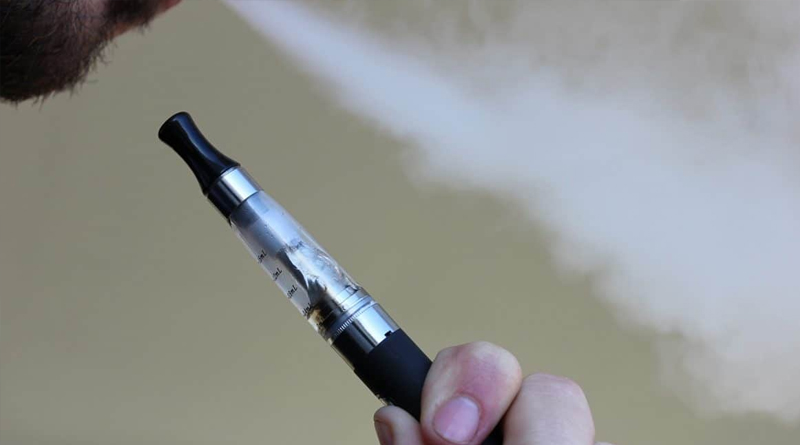The government is spinelessly hypocritical in banning the use of e-cigarettes, popularly called vaping because it entails inhaling nicotine-infused vapour from a heated liquid cartridge. Vaping has existed for only a decade, so long-term studies of its health effects are unknown; but it has certainly caused some deaths and diseases. These pale into insignificance when compared to more than a million deaths a year in India from tobacco use, mostly from cheap bidis, according to studies by Dr Prabhat Jha of Toronto University.
One study by Public Health England estimates that vaping is 95% less harmful than smoking. Side-stream cigarette smoke can affect the health of innocent bystanders, but ecigarettes produce no smoke with associated carcinogens like tar, which is why they are less lethal.
The tobacco lobby is delighted with the ban on e-cigarettes, which will boost cigarette and bidi sales. The shares of ITC, the top cigarette producer, shot up 10% after the ban. The government claims the ban will protect young Indians from being lured into vaping. Alas, many deprived of vaping will shift to smoking, which is far more harmful. Never before has a health policy aimed, behind hypocritical claims to morality, to actually increase tobacco-related deaths from cancer, strokes and emphysema.
Recent reports in the US have linked seven deaths and over 300 cases of lung illness with vaping. However, the deaths seem to be linked to marijuana derivatives and vitamin E acetate that are mixed with nicotine in illegal ecigarettes, and not found in legally produced ones. Yet activists want to ban legally made e-cigarettes.
President Trump wants to ban flavoured e-cigarettes that may attract youngsters. Okay, but why ban unflavoured ones? In the US, vaping among high school students has risen sharply since 2011; but at the same time, smoking cigarettes has fallen sharply too. Stop vaping and surely smoking will rise again.
Evidence aplenty shows that smokers who fail to quit smoking have been able to shift to vaping and eventually quit altogether. That is a huge gain. Many who give up smoking return to it. Yet any way out, like vaping, merits encouragement.
Finance ministers regularly increase taxes on cigarettes in a high moral tone, saying this will curb a deathly habit while raising a lot of revenue. Yet they fight shy of high taxes on bidis. A study in 2009 estimated bidi sales at one trillion against 106 billion cigarettes. The 90% bidi proportion might have decreased slightly with rising Indian incomes; but the overall number of smokers is still rising, so, over 80% of all smoking relates to lightly-taxed bidis, not heavily taxed cigarettes.
Bidis are given preferential treatment because they are hand-made and employ millions in gathering tendu leaves and working in the factories. So what? Does it make sense to encourage a million people to kill another million people slowly and agonisingly through long-term poisoning? Is this morality?
A 2008 study by Emil Sunley, an IMF consultant, estimated that bidis account for 77% by weight of all tobacco consumption but only 5% of tobacco taxes. Bidis produce more nicotine and tar than cigarettes. The tax break for bidis was supposed to encourage employment but actually encouraged corruption and mis-declaration of factory-made bidis as hand-made. He highlighted the fact that the tax per thousand bidis was Rs 14 for hand-made ones but Rs 26 for machine-made ones.
Swaminomics made a detailed estimate in 2009 that equating taxes on bidis with those in cigarettes would yield a whopping Rs 80,000 crore. The figure today would be much higher, enough to finance MNREGA for several years. Indeed, it would suffice to finance the Modi government’s outlays for Ayushman Bharat, its universal health insurance scheme. But no, the bidi lobby continues to triumph.
Worse, the government continues to encourage and subsidise tobacco farming. Tobacco farmers get the same cash grants from the PM kisan scheme or state-based schemes like Rythu Bandhu as farmers of nutritious crops. They get the same subsidies for electricity, water, and fertilisers. Can anything be crazier than subsidising the production of a killer product and then claiming, in high moral tones, that you want to curb consumption of that killer product?
Finance minister Nirmala Sitharaman says all e-cigarettes are imported so they do not promote economic development. But if they save lives through reduced lethality, is that not development? Madam Sitharaman, instead of defending the ban, please equalise the tax on bidis and cigarettes in a phased manner. That will do infinitely more for health and yield far more revenue for health spending than a ban on vaping.


